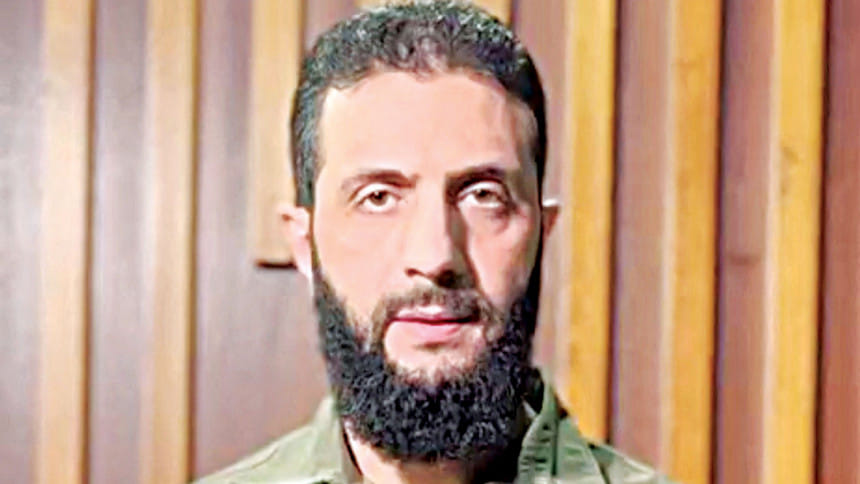Golani, the man who toppled Assad

Abu Mohammed al-Golani, the militant leader whose stunning insurgency toppled Syria's president Bashar Assad, has spent years working to remake his public image, renouncing longtime ties to al-Qaeda and depicting himself as a champion of pluralism and tolerance.
In recent days, the insurgency even dropped his nom de guerre and began referring to him by his real name, Ahmad al-Sharaa.
The extent of that transformation from jihadi extremist to would-be state builder is now put to the test.
Insurgents control capital Damascus, Assad has fled into hiding, and for the first time after 50 years of his family's iron hand, it is an open question how Syria will be governed.
The 42-year-old al-Golani -- labeled a terrorist by the United States -- has not appeared publicly since Damascus fell early yesterday. But he and his insurgent force, Hayat Tahrir al-Sham, or HTS – many of whose fighters are jihadists -- stand to be a major player.
For years, al-Golani worked to consolidate power, while bottled up in the province of Idlib in Syria's northwest corner as Assad's Iranian- and Russian-backed rule over much of the country appeared solid.
He maneuvered among extremist organisations while eliminating competitors and former allies. He sought to polish the image of his de-facto "salvation government" that has been running Idlib to win over international governments and reassure Syria's religious and ethnic minorities. And he built ties with various tribes and other groups.
Along the way, al-Golani shed his garb as a hard-line Islamist guerrilla and put on suits for press interviews, talking of building state institutions and decentralising power to reflect Syria's diversity.
"Syria deserves a governing system that is institutional, no one where a single ruler makes arbitrary decisions," he said in an interview with CNN last week, offering the possibility HTS would eventually be dissolved after Assad falls. "Don't judge by words, but by actions," he said.
Al-Golani's ties to al-Qaeda stretch back to 2003, when he joined extremists battling US troops in Iraq. The Syrian native was detained by the US military but remained in Iraq. During that time, al-Qaeda usurped like-minded groups and formed the extremist Islamic State of Iraq, led by Abu Bakr al-Baghdadi.
In 2011, a popular uprising against Syria's Assad triggered a brutal government crackdown and led to all-out war. Al-Golani's prominence grew when al-Baghdadi sent him to Syria to establish a branch of al-Qaeda called the Nusra Front. The United States labeled the new group as a terrorist organisation. That designation still remains in place and the US government has put a $10 million bounty on him.

 For all latest news, follow The Daily Star's Google News channel.
For all latest news, follow The Daily Star's Google News channel. 










Comments